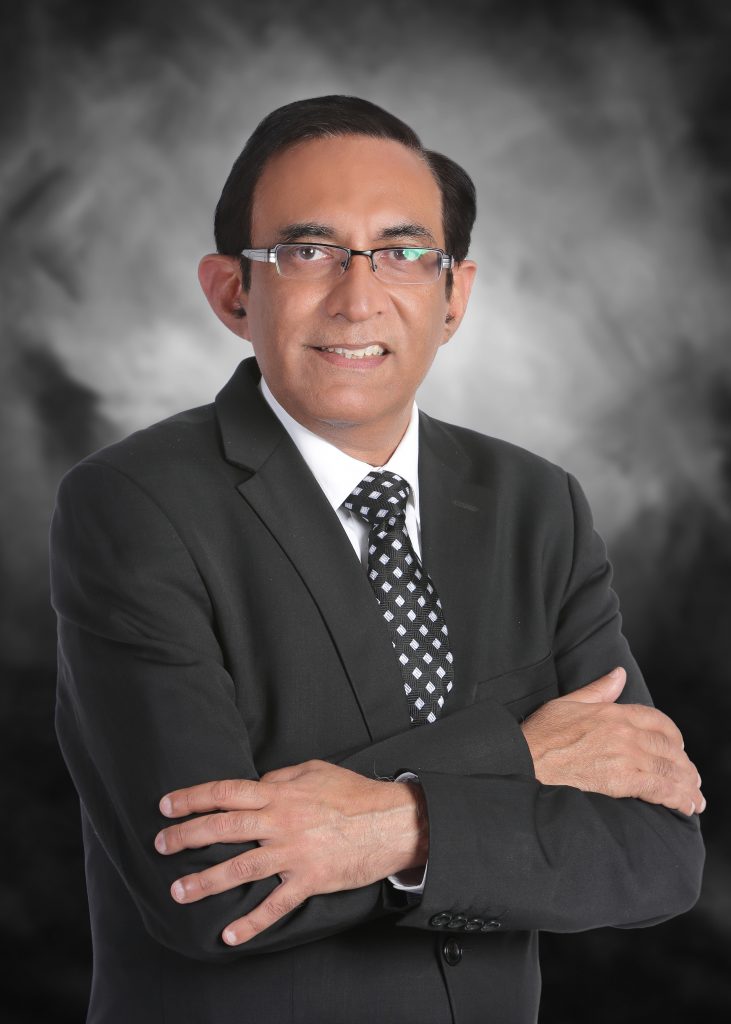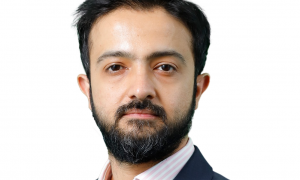This interview has been published by Namrata Singh and The SuperLawyer Team

You’ve had an impressive journey in the field of law, especially in Intellectual Property and Commercial laws. Could you share some pivotal moments or experiences that shaped your career since you started practicing in 1994?
I started off my journey as a lawyer in the year 1994 in the field of IP with a very well-known and IP-focused pioneer Firm in India i.e., Remfry and Sagar. The work I did in this firm particularly laid the foundation for me as an IP/Commercial lawyer. I was fortunate enough to have been exposed to various IP forms especially when in the year 2002, I took up a challenging role with UK based International Consultancy Firm, Rouse & Co., in Dubai, UAE. My stints at both these organisations helped me in my career by getting a very wide exposure to various aspects of intellectual property and commercial/transactional laws. Thereafter, in 2010, I was offered the role of a Partner with an Indian Firm, RNA, based out of India. For this Firm, I was heading their trademark prosecution and Transactional law practice. In 2022, I shifted my base once again to Dubai, UAE. I took up the role of a Senior Associate with a full-service law firm, Alsuwaidi and Company, It was founded in the year 1997 by a UAE national, Mr Mohammed Alsuwaidi, who is a very well-known and established Arbitrator in this region. My areas of practice cover intellectual property and commercial corporate matters including contracts, information technology and media laws”.
With a rich legal experience spanning both India and the UAE, how do you navigate the nuances and differences in legal systems and practices between the two jurisdictions?
For navigating the legal nuances between two jurisdictions, it is very important to have an understanding of the basic fabric of the two judicial systems. India’s legal system is derived from common law, civil law and to some extent religious customs as well. In my areas of practice in India i.e., IP and Commercial/Transactional laws, it was mainly the mix of common law and civil law along with precedents – which are given their due importance in judgements – while formulating guidelines and legal opinions. On the other hand, UAE’s Onshore judicial system purely follows civil law and is not precedent-based. Hence, to practice UAE laws it is very important to know the laws and their interpretation as well. For this, it is very important to have access to the practical knowledge base through your interaction with peers within your organisation as these would offer insights into the pragmatic application of laws, local court practices, and nuances that might not be apparent in legal texts. Another key area is educating clients about such laws as what works in one jurisdiction may not work in another and thus customizing strategies to fit the specific legal landscape. Lastly, I would say ‘continuous learning’ which is very important in our profession, especially with changing laws and legal scenarios as only then you can keep yourself abreast with the latest developments in your areas of interest.
Being a facilitator for trademarks in the STARTUP INDIA initiative, how crucial is intellectual property protection for emerging startups, and what advice do you often find yourself giving to them?
Intellectual property protection is extremely crucial for emerging startups not only in India but in any other emerging markets including UAE. It safeguards their innovations, ideas, and brands, giving them a competitive edge and fostering growth. One of the foremost things is to educate
Startups about the different types of IP. Many times, I’m asked this question of what form of protection they can get for their logos/designs or innovations. So, it becomes very important to help them identify their unique assets that require protection. For instance, if they have an innovative product, they might need a patent. If they have a distinct brand name or logo, a trademark is essential. I also advise them to conduct thorough prior searches to ensure their IP doesn’t infringe on any of the existing rights. Similarly, they should protect their innovations promptly to prevent others from claiming similar ideas. Further, Startups should always budget for IP protection in their business plans. Sometimes, Startups overlook this aspect due to budget constraints, but it’s critical for long-term success. I would also guide them on utilizing government initiatives on Startup India that offer support and resources for IP protection including financial assistance. Ultimately, the goal is to help Startups recognize the value of their intellectual property and take proactive steps to protect it. Doing so can significantly impact their ability to attract investors, scale their business, and establish a strong market presence.
You’ve worked on diverse projects, from advising on healthcare services to handling trademark portfolios for Fortune 500 companies. Could you share a project that was particularly challenging or rewarding, and what lessons you drew from it?
One challenging yet immensely rewarding project involved assisting an American Corporation in navigating the intricacies of trademark law while safeguarding its interests in the Indian market. This corporation had developed a unique brand identity and was rapidly expanding its business. The challenge lay in devising a comprehensive trademark strategy(ies) that protected their brand/s while ensuring compliance within the parameters of the law. The rewarding aspect stemmed from successfully guiding the company through this process. This involved conducting thorough trademark searches, advising on the availability of trademarks, maintenance of their registrations, and implementing strategies to safeguard their brand’s identities.
Currently, working as a Senior Associate at Alsuwaidi & Company, how do you balance your role in Intellectual Property with corporate matters, and what unique challenges and opportunities does this dual expertise present?
Balancing roles in Intellectual Property and corporate matters can be intricate but incredibly rewarding. I would say that handling Intellectual Property and corporate matters requires a blend of legal expertise. It is essential to not only know and understand the intricacies of IP law but also the corporate laws including regulations and transactions. This dual expertise helps me in my practice by providing comprehensive solutions especially when it comes to drafting and/or vetting contracts for clients. When advising on corporate strategies, I’m able to integrate IP considerations ensuring that clients safeguard their intellectual property assets while pursuing business objectives. Sometimes, conflicts may arise between IP and corporate interests. For instance, a merger might impact existing IP rights. It is our role to then somehow find a balance that preserves these rights while supporting the corporate transition. Further, in an international market like the UAE, understanding global IP laws and corporate practices becomes crucial. You may face challenges related to harmonizing differing IP laws across jurisdictions while aligning them with corporate goals. For instance, in data protection laws, it is essential to know the local laws and also GDPR as these do come in handy when dealing with any sort of contract that provides for such data protection. It does require a deep understanding of both domains and effective communication with clients to align their interests. The challenges are unique, but so are the opportunities to provide comprehensive legal counsel and help clients maximize the value of their intellectual assets within their corporate strategies.
You have received several accolades in your career. How do these recognitions impact your approach to your work and the legal community at large?
Yes, I did receive accolades and because of this, it becomes incumbent upon me to rightly assess legal perspectives. These certainly boost confidence leading to increased motivation and dedication to maintaining high standards in my work. Further, it has also created a sense of responsibility to give back to the legal community. This has involved mentoring younger professionals within the organisations I’ve worked for, contributing to legal education by writing articles on related topics, being a speaker at events, round tables, seminars, webinars or actively participating in initiatives that benefit the profession or society. Overall, in my view, accolades do often serve as a source of motivation and a reminder of the importance of one’s work within the legal community, potentially pushing individuals to strive for further excellence and innovation.
You’ve been recognized for your expertise in both Traditional and Non-Traditional Trademarks. Can you share an example of a unique or unconventional trademark case that you found particularly interesting or challenging?
Yes, there was this sound mark of an American corporation, a giant in the field of computer processors, which has a distinctive musical note for the presence of their software. Traditionally, trademarks often involve logos or words, so attempting to trademark a sound was a unique challenge and interesting at the same time. We were made to provide the musical notation in the print form to the authorities along with the CD of the sound sought to be registered.
Outside of the legal realm, what are your personal hobbies or interests that provide you with a sense of balance and rejuvenation?
The hobbies and interests which I enjoy outside the legal realm are photography and travelling to different places along with spending time with my family.
With your extensive experience in handling commercial agreements, could you share a piece of advice for businesses, especially startups, when entering into legal agreements to protect their intellectual property?
When dealing with intellectual property in commercial agreements, especially for Startups, IP protection is critical as it often forms the core value of their products or services or for that matter any commercial venture. Taking proactive steps to safeguard it through robust legal agreements is a crucial aspect of business strategy. Given below are some key points to consider while entering into legal agreements to protect intellectual property.
- Specify what constitutes your IP, whether it’s patents, trademarks, copyrights, trade secrets, or any other proprietary information including any form of data. Be as precise as possible to avoid ambiguity.
- Clearly outline who owns the IP and establish the rights and limitations regarding its use.
- Also, determining ownership of any new IP developed during the collaboration is very important to avoid any conflict vis-à-vis ownership at a later date. For this, it is crucial to determine whether the IP remains with the creator or is jointly owned.
- Include robust confidentiality clauses to safeguard any sensitive information. This prevents the other party from disclosing or using your proprietary information without permission, even after the agreement ends.
- Specify the permitted use of your IP. Define how the other party can use your IP, whether it’s for a specific purpose, duration, or geographic area. Outline any restrictions or limitations clearly.
- Include provisions for resolving disputes related to IP, such as arbitration or mediation. This can help avoid lengthy and costly legal battles and resolve issues more efficiently.
- Provide details as to what happens to the IP post-termination. Also, provide details as to how the return or destruction of confidential information/IP will be handled to protect your assets.
- Review your agreements periodically, especially as your business grows. Ensure that the terms regarding IP protection remain relevant and in line with your business objectives.
Get in touch with Rajiv Suri-
























